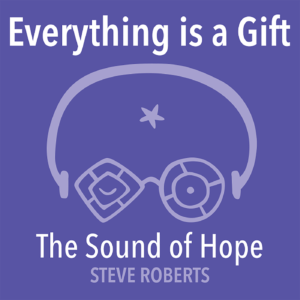To what extent are some members of the opposing sides in the Charlottesville, Virginia confrontation the same in their hatred? How much are each virulent in their disdain for what they feel the other represents? How are the lives of each compromised by these feelings? How is our society’s health diminished?
I’m sure that some members of the resistance to white supremacy, of which I am one, live the non-violent principles of the civil rights workers of the 1960’s, which I do, not well, but aspire to. These principles include that to truly act in a non-violent way, one must remove violence from one’s heart.
My sense is that most people with that capacity have the benefit of some serious training, whether in this life or a previous one. The rest of us, less skilled at returning love for hate, are more susceptible to being outraged by that which we consider vile. In the case of Charlottesville, we may find ourselves hating the haters. And hey, we can easily justify this reaction because, after all, we’re on the side of the angels and those assholes are not.
The self-destructiveness of that response is what some of us may have in common with those whose beliefs and actions we abhor. I’ve never heard of anyone hating their way to happiness, except by learning how limiting hate is.
The Virginia conflict is a great opportunity to learn about ourselves. It’s a formidable task to explore: Why do I respond the way I do? Why do I hate, demonize, and the like? By what internal process or methodology do I conclude that that is a sensible response to something?
One needn’t have the metaphysical clarity of the enlightened to unearth an answer worth considering. It lies in the principle that how we define our world creates our world. The only reason we like or dislike anything––or feel compassion or hatred for anyone––is how we have defined reality.
Our reluctance to take responsibility for the fear and pain we feel prompts us to look out there for something or someone to blame for that pain, that fear. We attempt to protect ourselves by believing, for instance, that the blatant Nazi and Klan-inspired display of racism and anti-Semitism is the cause of our hatred of that display.
From there it’s a small step to believing that our hatred of that which we call despicable is necessary to make the world a better place. And if hatred is necessary, how far behind is violence?
In response to the Charlottesville aggression, there is a slogan I’ve seen a few times on Facebook: “If you’re not outraged, you’re not paying attention.” I think the opposite: “If you’re paying attention, you’re not outraged.”
If we’re paying attention, sooner or later we know:
-
- The behavior of others is not responsible for our feelings.
- Our response to everything is ultimately a choice.
- Hatred is a poison we administer to ourself.
- Mighty resistance does not require demonization.
- Lessening humankind’s fear of differences, the cause of so much harm, may require laws and education, but lasting change must be rooted in the willingness to discover the ways hate always suffocates our potential. Hatred fuels rigidity and seeks domination––the opposite of health, which nurtures expansion and seeks understanding.
- Energetically placing our consciousness in the minds of those who hate will allow us to experience the profound unmanaged terror that causes hate. This will help us resist their actions with compassion rather than with animosity. It will also help us cultivate compassion for ourselves for harmful choices we make as a result of our unmanaged fear.
- The eruption in Charlottesville is painful, but not special. It is a recent addition to the long, bloody list of reminders that date to the founding of our nation. I’m speaking of the reminders of how fanatically positive we must be to respond effectively to bigotry. Meeting hate with hate is easy but fruitless; not meeting hate with hate is difficult but empowering.
- Charlottesville is especially noteworthy for perhaps only one reason: we have a president whose own anti-Semitism and white supremacist beliefs, coupled with a lack of moral compass and wisdom, is inflaming in a way perhaps unprecedented those forces of selfishness that have always threatened our nation’s well being.
And maybe best of all, what we’ll know by paying attention is that there are inspiring role models of responding to hate in an enjoyable, life-affirming way. I kid you not. That will be the focus of my next two cents. But if you just can’t wait, check out the op-ed in the NYT titled “How to Make Fun of Nazis.” Feel your heart sing “Yess!” and your face perform what Thich Nhat Hahn calls “mouth yoga”—a warm and gentle smile.





Nancy Cathcart said:
In Boston in the early hours of the Free Speech Rally, I watched a single white male wearing a Make America Great Again baseball cap making his way through the growing crowd of counter protesters. My heart broke watching the anti-fascists, anti-nazi men and women surround him with threats and hate and name calling. Do they not see that they are what they came to protest against? The well-trained, well-prepared Boston police encircled this man and lead him safely away. I stopped watching. Thank you again for your reminders of a cool mind and a warm heart. Nancy Cathcart
Julie Lineberger said:
THANK YOU STEVE for putting MY thoughts, and yours ;), into words.
Tom Brady said:
I widely circulated the “How to Make Fun of Nazis” and this a great follow-up. My favorite quote is…”I’ve never heard of anyone hating their way to happiness, except by learning how limiting hate is.” Thanks as always. Tom